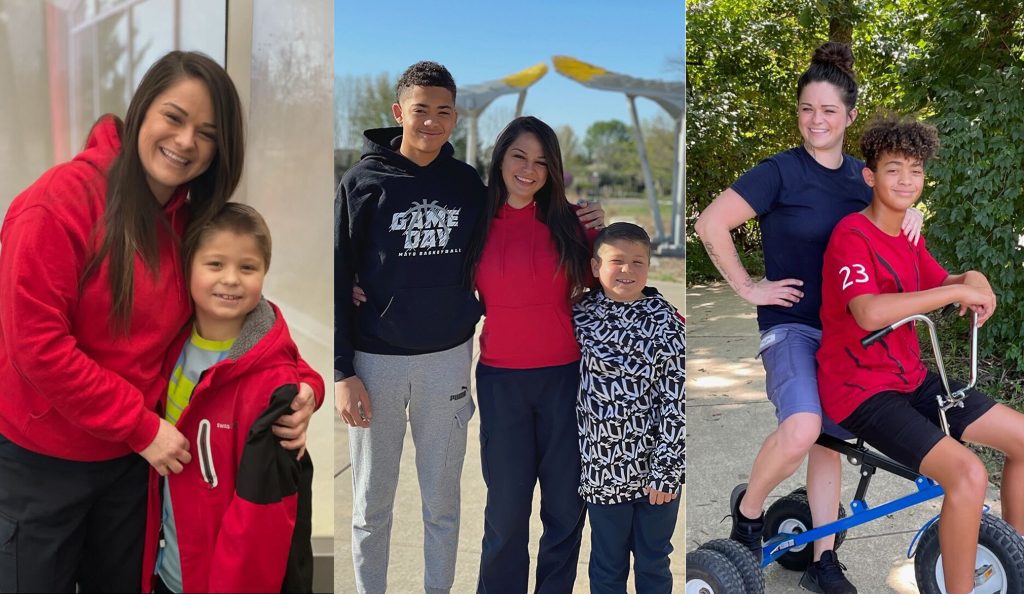Kansas officials are moving closer to setting up a nursery for mothers with newborn babies at the Topeka Correctional Facility. This initiative aims to provide a safe and supportive environment for incarcerated mothers, allowing them to bond with their newborns while still serving their sentences. The plan has been in the works for some time, and now, after discussions with lawmakers and advocacy groups, officials are closer than ever to making it a reality.
Kansas Department of Corrections Secretary Jeff Zmuda provided an update on the nursery proposal last week. He told lawmakers that the department is collaborating with various stakeholders, including legislators and advocacy groups, to determine the specifics of how the nursery will operate. Zmuda expressed confidence that the nursery would be established soon, citing the example of seven to eight other states that have already set up similar programs.
“We were working with some legislators last session, and we’re working with some advocacy key groups to determine what that looks like—how long the child would stay there, what kind of services need to be there,” Zmuda said. “I think we’ll get nurseries. There are about seven, eight states that are doing nurseries for newborns from a mother who’s incarcerated in prison. We want to see if we can make that happen.”
This new initiative represents a significant step in addressing the challenges faced by incarcerated mothers. In many cases, women who are incarcerated face the difficult reality of being separated from their children, especially newborns. The nursery at Topeka will provide a space where mothers can care for their babies, build their bonds, and access essential services that support both their parenting and rehabilitation.
A Look Back at Past Efforts
Former Kansas State Senator Kristen O’Shea, who represented Topeka, led a legislative push for such a nursery last year. O’Shea’s bill would have allowed children born after a mother’s sentencing or during her time in prison to stay with her in the facility for up to three years. However, the bill did not pass into law. Despite this setback, the momentum for a nursery program at Topeka has not slowed.
Now, Kansas Department of Corrections officials, including Secretary Zmuda, say that legislation is no longer necessary. The department is working to establish the nursery through administrative efforts and is developing a proposal for a capital improvement plan. This plan will outline the specifics of how the nursery will be set up and what kind of services will be available to incarcerated mothers.
Zmuda’s presentation to lawmakers revealed that the potential nursery at the Topeka Correctional Facility would likely include individual rooms with baby beds, rocking chairs, and a play area for the children. Additionally, the nursery would have a kitchenette to help mothers prepare meals for their babies. These amenities would create a supportive environment where mothers can care for their babies while still fulfilling their prison sentence.
The Role of Advocacy Groups and Community Support
Incarcerated mothers and their children face unique challenges. Many mothers who give birth while in prison are separated from their babies at a young age, which can have long-term emotional and psychological consequences. Advocacy groups have long called for more programs that allow mothers and children to stay together, as studies show that children benefit from the presence of their mothers during early childhood. These groups have played an important role in pushing for the establishment of nurseries in correctional facilities.
In Kansas, local activists and advocacy groups have been working closely with the Kansas Department of Corrections to ensure that the nursery program meets the needs of both mothers and children. These groups have been providing valuable input on what kind of services should be included in the program, such as parenting classes and child development support. They are also involved in developing the criteria for who qualifies for the program and how long the children will be allowed to stay in the nursery.
Zmuda mentioned that the next steps involve determining the programming for the nursery, including educational opportunities for the mothers. These could include parenting classes that help women develop the skills they need to care for their children and prepare for life after prison. The department will also need to establish criteria for which mothers and children will be eligible for the program and how long the children will be able to stay with their mothers in the facility.
Benefits of the Nursery Program
The nursery program at the Topeka Correctional Facility has the potential to provide numerous benefits for both incarcerated mothers and their babies. For mothers, the opportunity to bond with their babies during the early stages of life is crucial for emotional and psychological well-being. It also helps mothers develop parenting skills that they can carry with them after their release. Studies have shown that children who maintain strong bonds with their mothers during the early years are more likely to have positive developmental outcomes.
The program also offers the chance for mothers to be involved in their child’s life, despite being incarcerated. This can reduce the trauma of separation for both the mother and the child. It may also reduce the likelihood of the child being placed in foster care, which is often the case when a mother is incarcerated.
In addition to the benefits for the mothers and their children, the program aligns with broader goals of rehabilitation and reintegration into society. The ability to raise a child in a supportive and structured environment may help the mothers develop a sense of responsibility and purpose, which is crucial for successful reintegration into society after serving their sentence.
Next Steps for the Nursery Program
The next steps for the nursery program will involve finalizing the plans for the space and services offered. This includes determining the specific qualifications for mothers and children to be eligible for the program and finalizing the length of stay for the children.
The Kansas Department of Corrections is continuing to work closely with advocacy groups, lawmakers, and community leaders to ensure that the nursery will be a positive and effective program. Once the plan is finalized, the department will move forward with its implementation, with the hope of opening the nursery in the near future.
While the nursery is still in the planning stages, it represents a significant step toward better supporting incarcerated mothers and their children. It offers an opportunity for mothers to care for their babies while also receiving the support they need to prepare for their future, both as parents and as individuals reentering society.
This initiative also speaks to a broader trend across the United States, where many states have begun to adopt similar programs that allow incarcerated mothers to care for their newborns. The Kansas plan could serve as a model for other states looking to create more supportive environments for incarcerated mothers and their children.
In the coming months, we can expect more updates on the progress of the nursery at the Topeka Correctional Facility, and the hope is that this program will make a meaningful difference in the lives of mothers and children in the Kansas prison system.
Disclaimer – Our editorial team has thoroughly fact-checked this article to ensure its accuracy and eliminate any potential misinformation. We are dedicated to upholding the highest standards of integrity in our content.





More Stories
Kansas Plans Nursery at Women’s Prison in Topeka to Provide Care for Incarcerated Mothers and Their Babies
Kansas Plans Nursery at Women’s Prison in Topeka to Provide Care for Incarcerated Mothers and Their Babies
Kansas Plans Nursery at Women’s Prison in Topeka to Provide Care for Incarcerated Mothers and Their Babies